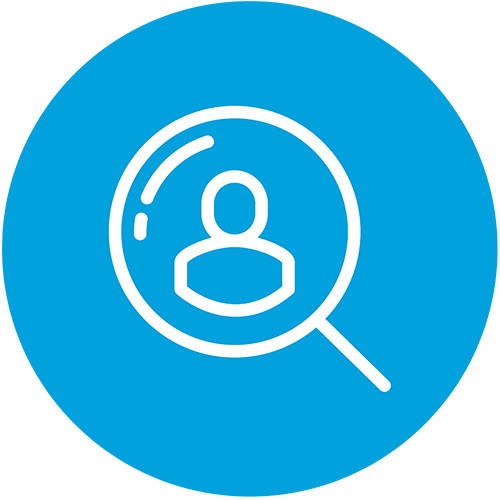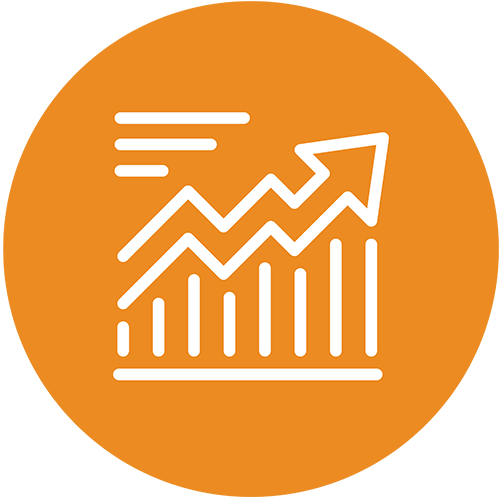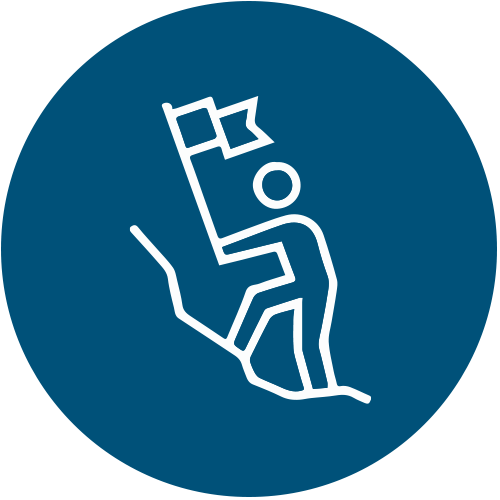
PD2023 Recording Bundle
-
Register
- Non-member - $690
- Professional Member - $520
- Associate Member - $520
Get 34 sessions offered at the Prospect Development 2023 Conference, held August 28 - 31, 2023.
- A Roadmap to Evaluating Staff Performance - Communicate Clear Expectations and Provide Helpful Feedback
- Apra Talks: Career Paths: How Did You Get Here? Where Can You Go?
- Best Practices for Utilizing Social Media in Prospect Research
- Better, Stronger, Faster: Rebuild Your Qualification Program
- Closing Time: Calculating Risk to Encourage Proposal Velocity
- Cost Per Dollar Raised (CPDR) or Return on Investment (ROI)? Two Sides of the Same Coin to Assist with Analyzing Fundraiser Performance and Supplementing Donor Pipelines
- Create and Maintain a Prospect Referral Tracking System - Increase Qualification Visits, Track Success, and Connect Research Activity to Revenue
- Creating Portfolios Categories that Reflect Reality: Alternatives to Tracking the Gift Cycle at the Prospect Level
- Emerging Trends in AI and Beyond: A Partner Industry Panel
- Focusing Prospect Development Efforts
- From Scratch: Developing a New CRM Training Program to Engage Fundraisers
- Gain Clarity, Create Efficiency, and Fuel Growth with Portfolio Optimization
- How to Clean-Up Messy Data
- How to Have Meetings that Don't Suck
- Keynote Presentation: Being Fearlessly You: Valuing Everyone's Differences for Greatest Success!
- Managing Organizational Change and Encouraging Collaboration Across Departments in a Complex University System
- Maximizing Relationship Management: Data-Driven Patient Pipeline Analysis
- Movers and Shakers: Why Prospect Development are the Influencers of any Development Team
- Power BI: Excel's BFF
- Prospecting in Indian Country: A Longitudinal Understanding of Tribal Nations in Research
- Ready, Set, Go! Creating Prospect Management Department in a Remote Environment
- Relationship Mapping - Finding a Path to Distant Prospects
- SalesForce Reporting: Return of the...Data
- Scaling Your Shop Toward Mega Philanthropy
- Sprint Your Way to Sanity: Adapting Agile & Scrum for Prospect Development
- Starting from Scratch: Building a Prospect Research Department from the Ground Up
- Texas A&M Foundation: Data Driven Decision Making
- The Marathon and the Sprint: Managing Campaigns with Data-Driven Strategy
- Transition as Opportunity: Prospect Research Innovation in Times of Change
- Volatile Opportunity: Cryptocurrency in Fundraising
- We've Got the Guide! Now What?: A Case Study on Implementing the Apra DEI Data Guide at UNICEF USA
- What's Holding Your Fundraising Back? Create a Strategy for Success!
- Your Doctor, Anytime, Anywhere, All at Once: The Rise of Concierge Medicine
- Your Mid-Level Donors and March Madness: How to Organize the Tournament, Craft the Brackets and Play the Game
-
Contains 1 Component(s)
Apra Talks has been one of the most versatile sessions at the conference. Over the years, it has been delivered as TED-style talks, friendly debates and short presentations on important and timely topics. No matter the format, Apra Talks has always been about connecting with and learning from perspectives within our prospect development community. This year, we're highlighting three prospect development professionals to discover how they got where they are and where they see the profession going in the future. You'll hear their unique career journeys and ways they have advocated for themselves along the way. Our work in prospect development occurs within larger social and organizational paradigms, and we've experienced fundamental shifts over the past two years. Our speakers this year will share their insights into how they, and their organizations, are thinking and working differently as a result. We hope this session will spark questions, conversations and ideas that can be shared at the conference and beyond. Regardless of what your career aspirations are, this interactive panel will provide you with tactical ideas for how you can get there.
-
Contains 1 Component(s)
Join us for this highly anticipated prospect development industry event! Geared around thought leadership and growth within the prospect development space, the Partner Industry Panel will feature four thought leaders from various supporting organizations within the philanthropy space. The panelists will discuss the various trends they are seeing in the philanthropy world, ways to combat various challenges currently being faced by industry professionals and share tips based upon their own experiences. Moderated by Prospect Development 2023 Conference Planning Committee Chair Stephanie Brouwer (Creative Fundraising Advisors), this is an event you won’t want to miss.
-
Contains 1 Component(s)
Your mid-level donors are a wide range of caring individuals with varying degrees of future philanthropic potential. As a research professional, we'll discuss your role in assessing the field of hopeful major donors, organizing and managing the process, and developing a game plan with your advancement partners.
-
Contains 1 Component(s)
In August 2022, on the heels of our biggest fundraising year in history, Davidson College not only officially graduated our most famous alum, NBA MVP Stephen Curry (!), but also ushered in a new president. As the director of our research and prospect management office, I will share our strategy and specific preparations leading up to and during this transitional year, which we approached as an opportunity to innovate. Collaborating closely with advancement colleagues, our two-person research team: - finalized and socialized a new rating system, moving from dated campaign ratings to ICE ratings (Inclination, Capacity, Engagement); - streamlined and improved the principal prospect profile and briefing process, prepping our new president for 150+ prospect meetings his first six months on the job; - launched a new Constituent Bio Summary report highlighting top prospects and influencers for leadership at events, pulling in updated ratings, photos and brief internal bios; and - updated our analytics and incorporated them into our CRM to prep for pipeline building. I will share specific examples of our efforts above and share tips on how to innovate and manage through change while strategically providing maximum value to new leadership.
-
Contains 1 Component(s)
1. Begin with portfolios and metrics. a. Know what each portfolio can produce and are the gift officers goals aligned with their portfolio? Do we have a process for why a donor is actively managed? b. Will the portfolios produce what is needed to fund your initiatives this year? If not, they may need to be rebalanced. 2. Does your fundraising team understand our initiatives? a. Have you created a communications calendar so they know when their donors are going to receive mailings, solicitations, etc. so they personalize communications to their donors? 3. What is the fundraising pipeline expected to produce this year? a. Create metrics and have a strategy for your portfolios. b. Who in your portfolio is going to be solicited this year for more than an AF gift? Have a plan to help each member so your team will be successful. This doesn't have to be hard or complicated. Build a foundation for success. The target audiences are small shops or even large shops that are trying to help their fundraising team achieve greater success. A gift officer, major gifts officer, prospect management, and communications are all target audiences. Fundraisers tend to be on an island alone, but every gift is a result of work that the entire development team has done. The goal for the presentation is strategy. How do we all work collectively and collaboratively to meet our goals? I cover gift officers, communications, and prospect research.
-
Contains 1 Component(s)
As an autistic and legally blind person Mickey Rowe believes that when we design for accessibility, we help everyone perform at their best, not just people with disabilities. Mickey has had to advocate for himself his whole life, yet becoming better at advocating for oneself and one's company is a skill we all would benefit from. When we embrace all our differences and value the things that make our colleagues' lived experiences different from our own, we are better able to collaborate with each other, embracing all of our different strengths. In this keynote, Mickey shares his own lived experience before emboldening participants to value their own differences and the differences of their colleagues and daring guests to advocate for themselves and others so they can truly perform at their best.
-
Contains 1 Component(s)
The University of Illinois is a complex system comprised of three universities, including the flagship campus at Urbana-Champaign. The prospect research department is housed in a related organization, the University of Illinois Foundation. Senior Director of Performance Management Katie Harrell and Director of Research and Portfolio Management Caroline Nappo will share how they work with their teams and one another to identify business needs and generate solutions. This presentation will highlight examples of how different yet related advancement departments successfully collaborate to achieve shared goals around such areas as referral generation, data integrity, fundraiser education, and tools.
-
Contains 1 Component(s)
You know there are individuals who have the capacity and affinity to support your organization, but how do you get them engaged if they aren't already natural constituents? In this presentation, we will share our methodology for relationship mapping profiles and highlight our relationship mapping work with a private liberal arts college as they undertake an ambitious fundraising initiative for which they will need to engage new prospects who are outside their natural constituent base.
-
Contains 1 Component(s)
The classic gift cycle may be best practice when it comes to fundraising and tracking proposals, but is it the best way to categorize assigned prospects? The Prospect Development team at Temple University didn't think so. Simple engagement measures are the foundation of a suite of tools that allow the team to identify priorities and opportunities. These measures have changed Temple University's understanding of prospects, portfolios, and even fundraising potential.
-
Contains 1 Component(s)
Your data is messy - now what? Based on CCS Fundraising's experience working with and cleaning thousands of donor datasets, in this session we will discuss how to achieve optimal data integrity. Whether it's an issue of reconciling data from different sources, dealing with missing data, or identifying unique household records, data health is about making your records into a strategic asset. With some simple, high-impact techniques, a healthy database will provide a consistent pipeline for finding new opportunities. CCS Fundraising will provide client examples and a step-by-step guide on how to perform data health.




